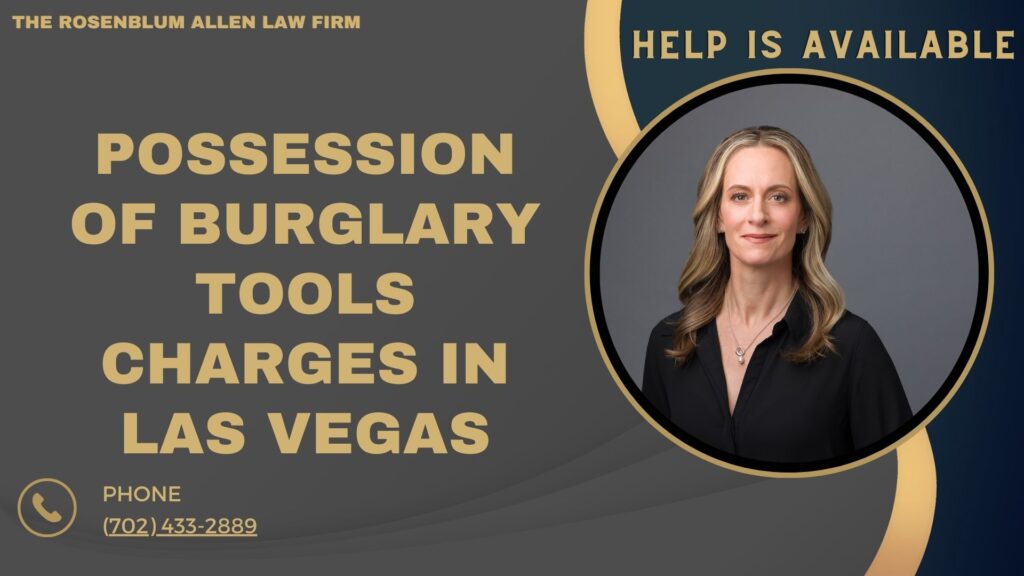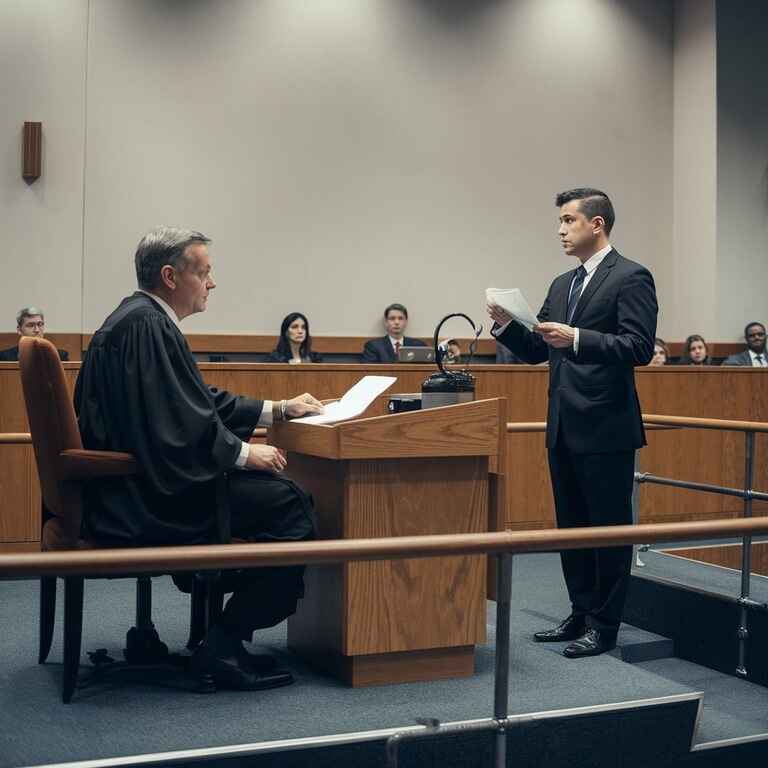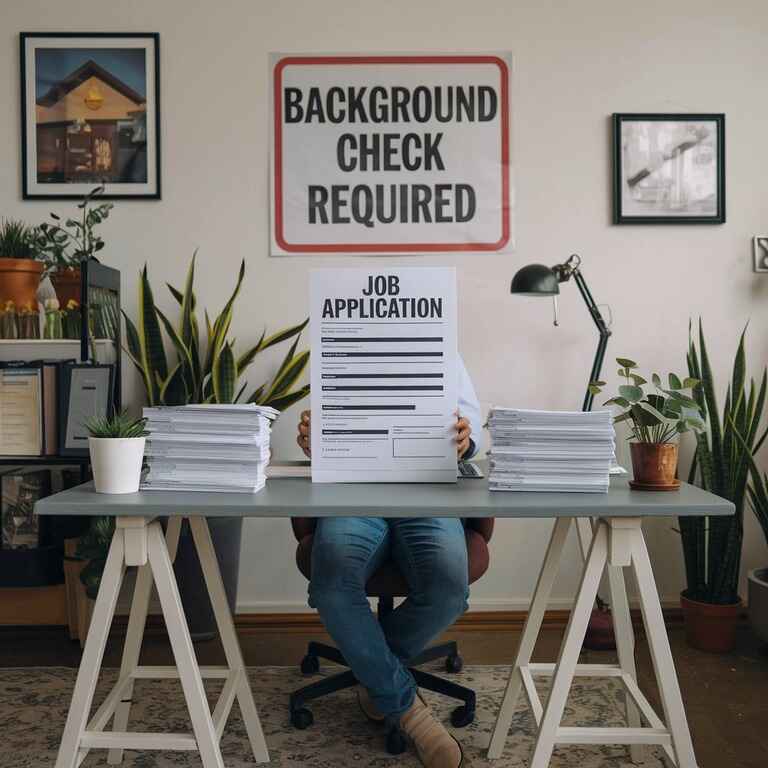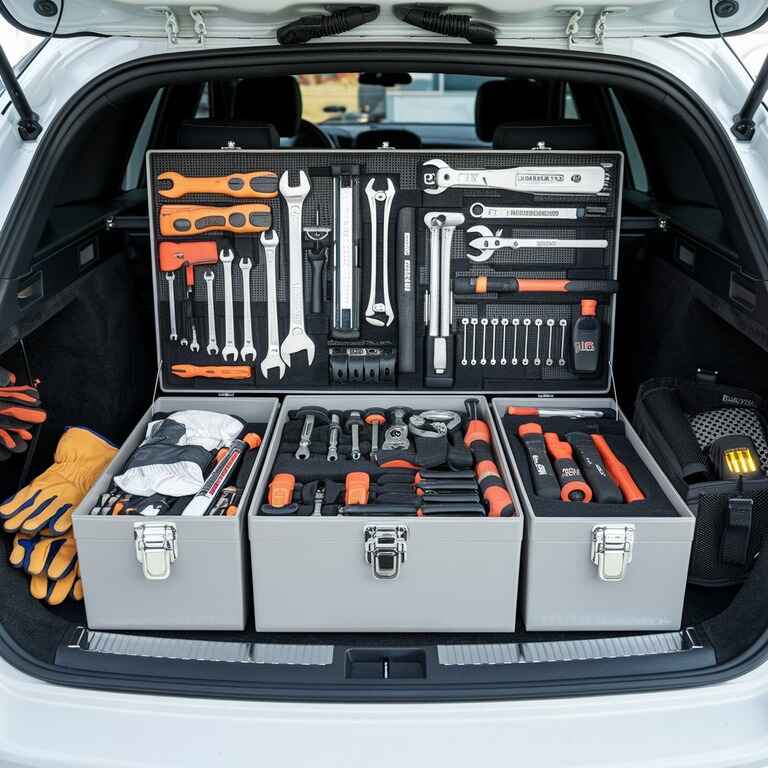Possession of burglary tools is a criminal offense in Nevada, specifically involving the ownership, control, or use of tools that can facilitate unlawful entry into a property. The tools themselves do not have to be illegal; their classification as burglary tools often depends on how they are intended to be used.

Overview of Possession of Burglary Tools Charges in Las Vegas
Definition of Possession of Burglary Tools
Possession of burglary tools is a criminal offense in Nevada, specifically involving the ownership, control, or use of tools that can facilitate unlawful entry into a property. The tools themselves do not have to be illegal; their classification as burglary tools often depends on how they are intended to be used.
Common examples include:
- Crowbars
- Lockpicks
- Screwdrivers
- Bolt cutters
- Glass cutters
Possession becomes a criminal issue when accompanied by an intent to commit a crime, such as theft, within a building or structure.
Purpose and Intent of the Law
The law is designed to deter crimes before they occur by criminalizing the act of burglary and the preparatory steps. This helps law enforcement address potential threats and prevent harm to individuals and property.
Elements of the Crime
Possession
Legal Definition of Possession Under Nevada Law
Possession refers to having control over an item. This can include:
- Actual possession: The item is on your person (e.g., in your pocket or hand).
- Constructive possession: The item is not physically on you but is within your control (e.g., in your vehicle or home).
Types of Possession: Actual vs. Constructive
| Type of Possession | Description | Example |
|---|---|---|
| Actual | Physical control over the object | Carrying lock picks in a backpack |
| Constructive | Having access to the object even if not on your person | Storing bolt cutters in your car |
Intent to Commit a Crime
How Intent Is Established in Possession Cases
Intent is often inferred from:
- Circumstantial evidence, such as possession of burglary tools near a crime scene.
- Testimony or statements made by the individual indicating a plan to commit burglary.
Examples of Behaviors or Circumstances That Demonstrate Intent
- Carrying tools while lurking around a closed business after hours.
- Attempting to explain possession of specialized items without a clear lawful purpose.

Common Scenarios Leading to Charges
Suspicious Behavior and Arrests
Possession of burglary tools charges often starts with a simple observation by law enforcement. A police officer might notice behavior they consider suspicious. This could include:
- Lingering near closed businesses late at night.
- Attempting to avoid police presence or surveillance.
- Acting nervously when approached by authorities.
How Circumstantial Evidence Plays a Role
Officers and prosecutors may rely on circumstantial evidence to build a case. Examples include:
- Tools found near a recently reported break-in.
- Clothing or gloves that suggest preparation for a crime.
Even without direct evidence of a crime, these circumstances may be enough to arrest and charge someone.
Discovery During Routine Stops or Searches
Possession charges can also arise during routine encounters with police. Common scenarios include:
- Traffic Stops: Officers discover tools in a vehicle while pulling someone over for a minor infraction, like speeding.
- Searches During Arrests: If someone is arrested for a different offense, tools found during a search may lead to additional charges.
Legal Grounds for Searches and Seizures
Police searches must follow specific legal guidelines. Evidence gathered illegally cannot be used in court. For a search to be lawful, one of these conditions must be met:
- A search warrant was issued.
- The individual consented to the search.
- The officer had probable cause, such as spotting tools in plain view.
Example: A Traffic Stop Gone Wrong
Imagine someone pulled over for a broken taillight. The officer notices a crowbar and bolt cutters in the backseat. When questioned, the driver cannot provide an apparent reason for having these items. This could lead to possession of burglary tools charges, even if the person didn’t commit a crime.
Legal Penalties for Possession of Burglary Tools
Classification of the Offense
In Nevada, possessing burglary tools is generally treated as a gross misdemeanor. However, specific circumstances can affect how the crime is categorized:
- First-time offense: Likely a gross misdemeanor.
- Repeat offense or connection to a more significant crime Could lead to more severe charges, possibly even a felony.
Factors That May Influence the Severity of the Charge
- Whether the tools were used or intended to be used in an actual crime.
- Additional charges, such as trespassing or burglary, may be present.
- Prior criminal history of the accused.
Potential Fines and Jail Time
The penalties for a gross misdemeanor in Nevada can be significant:
- Fines: Up to $2,000.
- Jail Time: Up to 364 days in a county jail.
Probation or Alternative Sentencing
In some cases, judges may offer alternatives to jail time, such as:
- Probation, often with conditions like regular check-ins and community service.
- Enrollment in diversion programs aimed at rehabilitation.

Defenses Against Possession of Burglary Tools Charges
Lack of Intent
One of the strongest defenses to a possession of burglary tools charge is proving a lack of intent. Under Nevada law, owning or carrying specific tools isn’t enough to get charged. The prosecution must show you intended to use them to commit a crime.
How to Prove Lack of Intent
If you show that the tools were for a legitimate purpose, it can work in your favor. For example:
- Tools for Work: If you’re a mechanic, carrying wrenches and screwdrivers can be a regular part of your job.
- Personal Use: Sometimes, items like crowbars or flashlights might be in your car for personal or emergency use, not to break into buildings.
By explaining the intended use of the tools, you can avoid conviction.
Illegal Search or Seizure
Another common defense is that the evidence was illegally obtained. Any evidence found could be dismissed if law enforcement violated your rights during the search.
When a Search Is Unlawful
- No Warrant: Police must have a warrant to search your home unless there’s a clear and present danger.
- No Probable Cause: Officers need a valid reason to stop and search you. For instance, they can’t stop you for no reason and then search your car without justification.
- Violation of Rights: If you were forced or coerced into consenting to a search, it could be grounds for a defense.
If evidence is gathered in violation of your rights, it may not be used against you in court.
Insufficient Evidence
Sometimes, there isn’t enough evidence to prove you committed the crime. The charges may be dropped if the prosecution can’t prove beyond a reasonable doubt that you possessed the tools with criminal intent.
How Insufficient Evidence Can Lead to Dismissal
- No Physical Possession: It can be hard to prove possession if the tools weren’t found on you or in your immediate control.
- Lack of Connection to a Crime: Simply having burglary tools doesn’t prove you were planning to use them for a crime. The case may need more substance with additional evidence, such as eyewitness testimony or proof of intent.
The Role of Legal Representation
Importance of Hiring a Defense Attorney
Being charged with possession of burglary tools can be daunting. Hiring a criminal defense attorney is often your best bet. An experienced attorney knows how to navigate the complexities of criminal law and can help you build a strong defense.
How an Attorney Can Help Mitigate Charges
- Investigating the Facts: Your lawyer will investigate the circumstances of your arrest and search to ensure your rights were not violated.
- Negotiating Plea Deals: In some cases, an attorney can negotiate a plea deal that might reduce the charges or penalties you face.
- Presenting Defenses: A skilled lawyer will help you present defenses such as lack of intent or illegal search.
What to Expect from Your Attorney
When you hire an attorney, here’s what you can expect:
- Case Evaluation: Your lawyer will review all evidence and help you understand the strength of your case.
- Clear Communication: Your attorney will keep you informed throughout the legal process and answer your questions.
- Aggressive Defense: A reasonable attorney will protect your rights and fight for the best possible outcome.

Impact of a Conviction
Criminal Record and Future Implications
A conviction for possession of burglary tools can have long-lasting consequences. Even if you’re not sentenced to jail time, a criminal record can affect many aspects of your life.
Consequences for Employment
Having a criminal record can make it harder to:
- Get a job: Many employers conduct background checks, and a conviction can prevent you from being hired.
- Keep a job: If you’re already employed, a conviction could lead to disciplinary action or termination.
Consequences for Housing
Landlords often run background checks on potential tenants. A criminal record could:
- Make it harder to rent a home or apartment.
- Result in higher security deposits or special conditions for renting.
Consequences for Licensing
Certain professional licenses might be affected by a conviction, including:
- Construction licenses: If you work in a trade that requires tools, a burglary tools conviction could prevent you from renewing your license.
- Security clearances: If your job requires a security clearance, a criminal record can be a major barrier.
Options for Expunging a Record in Nevada
Fortunately, Nevada offers a chance to clean your record after a conviction. Expungement allows you to remove certain convictions from your criminal record.
Steps to Expunge a Conviction
- Eligibility: Not all offenses can be expunged, but some misdemeanor convictions may be eligible.
- Process: You’ll need to file a petition with the court, and the judge will decide if your case meets the criteria for expungement.
- Outcome: If your petition is granted, the conviction is erased from your record, and you can legally deny having a criminal history.
Reputational Damage
A conviction for possession of burglary tools doesn’t just impact your legal standing. It can also cause significant reputational damage.
Potential Social and Professional Impacts
- Social Stigma: People may view you differently, even if you were never convicted of a more serious crime. The label of “criminal” can stick with you.
- Professional Consequences: In some fields, a conviction can be particularly damaging. For example, if you work in a trust-based profession, like law or finance, a criminal conviction can undermine your credibility.
Strategies for Rebuilding Reputation
If you’ve been convicted, there are steps you can take to restore your reputation:
- Public Apologies: If the conviction was highly publicized, a heartfelt public apology can help show that you’ve learned from your mistake.
- Community Involvement: Volunteer work or involvement in positive community activities can demonstrate that you’ve turned your life around.
- Professional Help: Working with a public relations expert or career counselor can help guide you in managing your reputation moving forward.

Preventing Possession of Burglary Tools Charges
Awareness of the Law
Understanding the law is one of the best ways to avoid being charged with possessing burglary tools. In Nevada, possessing specific tools intending to commit a crime is illegal. But sometimes, the tools themselves may seem harmless. It’s essential to recognize what could be seen as suspicious behavior or possession.
What to Watch For
- Carrying specific tools: If you’re transporting tools like crowbars or bolt cutters, make sure you can explain why you have them.
- Behaving suspiciously: Hanging around areas targeted for break-ins might attract attention.
- Late-night activities: Being in the wrong place at the wrong time, like walking around a business district late at night with tools, can lead to unwanted questioning by the police.
By being aware of what might look suspicious, you can avoid situations where you might be charged.
Safe Practices
It’s essential to practice safe and legal handling and transporting of tools. A little preparation can prevent potential charges.
How to Legally Carry Tools
- Keep tools out of sight: Avoid displaying items like lock picks, crowbars, or other tools in public places that may raise suspicion.
- Document legitimate use: If you carry tools for a legitimate reason, such as work, keep documentation or receipts handy.
- Avoid traveling with unnecessary tools: Only carry the tools you need. Having too many tools in your vehicle or person can make it hard to explain their purpose if questioned.
What to Do if Stopped by Police
- Be honest: If the police stop you, calmly explain why you have the tools.
- Know your rights: If the police ask to search your belongings, you can refuse if they don’t have a warrant or probable cause.
- Stay calm: If you’re questioned or detained, stay calm and polite. Acting aggressively can make a situation worse.
Breaking It All Down
Understanding the law surrounding possessing burglary tools is key to avoiding criminal charges. Awareness of what constitutes burglary tools and carrying them with a legitimate purpose can go a long way toward protecting your legal rights.
If you are ever charged with possessing burglary tools, having a skilled criminal defense attorney is essential. They can help you understand the charges and guide you through the legal process, ensuring the best possible outcome.
Taking preventative steps, such as carrying tools legally and being mindful of your actions, can help you avoid criminal trouble. Remember, knowledge is power when staying on the right side of the law.

Frequently Asked Questions
What qualifies as a burglary tool under Nevada law?
A burglary tool can include any item designed or commonly used to break into property, such as crowbars, bolt cutters, lock picks, or screwdrivers. The key factor is whether the tool is intended for criminal use.
Can I be charged if I didn’t use the tools for a crime?
Yes. Possession charges focus on intent, not whether a crime was committed. You can still face charges if law enforcement believes you intend to use the tools for illegal purposes.
How can the prosecution prove intent?
The prosecution typically relies on circumstantial evidence, such as where and when the tools were found, your behavior, or any connection to a recent crime. Witness testimony or surveillance footage may also play a role.
Does the type of tool matter?
sometimes. While some tools, like lock picks, are closely associated with breaking, even ordinary items like wrenches or pliers could be considered burglary tools if paired with intent to commit a crime.
Can juveniles be charged with possession of burglary tools?
Yes. Juveniles can face charges for possession of burglary tools, though their cases are often handled in juvenile court, which focuses more on rehabilitation than punishment.
Is it possible to fight charges if the tools were found in a shared space?
Yes. Suppose the tools were found in a shared location, such as a vehicle or apartment. In that case, it may be difficult for the prosecution to prove that you had exclusive control or intent to use them illegally.
What should I do if the police question me about burglary tools?
Remain calm and respectful. You have the right to remain silent and to refuse consent for a search. If questioned, it’s often best to consult an attorney before answering.
Can possession of burglary tools charges be dismissed in plea negotiations?
Yes, depending on the specifics of the case. A defense attorney may negotiate to reduce or dismiss the charges, especially if there is insufficient evidence or questionable intent.
Does carrying tools for self-defense count as possession of burglary tools?
No. Tools carried for self-defense, such as a flashlight or multitool, are generally not considered burglary tools unless paired with evidence of criminal intent.
How does a prior record impact the charges of possession of burglary tools?
A prior record can lead to harsher penalties, mainly if the record includes similar charges. Repeated offenses may result in upgraded charges or less leniency during sentencing.
Can a possession charge affect my immigration status?
Yes. Criminal convictions, including possession of burglary tools, can impact immigration status, potentially leading to deportation or making it harder to obtain legal residency or citizenship.
What’s the difference between a gross misdemeanor and a felony for possession charges?
A gross misdemeanor carries penalties of up to 364 days in jail and fines up to $2,000. A felony involves more severe consequences, such as longer prison sentences and higher fines, and is typically reserved for cases involving additional crimes or aggravating factors.
Can I represent myself in court for a charge of possessing burglary tools?
While it’s legally allowed, representing yourself is not recommended. Criminal cases are complex, and having an attorney significantly increases your chances of a favorable outcome.
If you have more questions or need legal help, consider consulting an experienced criminal defense attorney to guide you through your unique situation.

Glossary
Burglary Tools: Items designed or commonly used to break into property, such as lock picks, crowbars, or bolt cutters. Even everyday tools like screwdrivers can be considered burglary tools if associated with criminal intent.
Intent: The deliberate purpose or plan to commit a crime. In possession of burglary tools cases, intent must be proven for a conviction.
Circumstantial Evidence: Indirect evidence that implies a fact or event without directly proving it, such as being in a suspicious location with burglary tools.
Probable Cause: A reasonable basis for law enforcement to believe that a crime has been or is about to be committed, justifying a search, arrest, or seizure.
Search and Seizure: The process by which police investigate a person or property to gather evidence. This must comply with constitutional protections under the Fourth Amendment.
Expungement: A legal process that removes a criminal conviction from a person’s record, making it as if the conviction never occurred.
Gross Misdemeanor: A criminal offense in Nevada that is more serious than a misdemeanor but less severe than a felony. It carries penalties of up to 364 days in jail and fines of up to $2,000.
Felony: A serious criminal offense that carries harsher penalties than misdemeanors, such as longer prison sentences and higher fines.
Rehabilitative Programs: Court-ordered programs, such as counseling or community service, aimed at helping offenders avoid future criminal behavior.
Reasonable Suspicion: A legal standard that allows police to briefly detain and investigate someone if they suspect criminal activity, based on specific and articulable facts.
Professional License: A credential required to work in certain industries or professions. Some convictions, like possession of burglary tools, can jeopardize obtaining or keeping such a license.
Plea Bargain: An agreement between the defendant and the prosecution in which the defendant pleads guilty to a lesser charge to avoid a trial or receive reduced penalties.
Mitigating Factors: Circumstances that may reduce the severity of a crime or its punishment, such as lack of prior offenses or evidence of good character.
Immigration Status: A person’s legal standing in a country as a citizen, permanent resident, or non-resident. Criminal convictions can negatively affect this status.
Juvenile Court: A court system designed to handle cases involving individuals under 18. The focus is on rehabilitation rather than punishment.
Fourth Amendment: A constitutional protection against unreasonable searches and seizures by law enforcement. Evidence obtained in violation of this amendment may be inadmissible in court.

Additional Resources for You
To further assist you in your time of need, our lead attorney, Molly Rosenblum, Esq., has meticulously crafted a suite of resources. These resources are designed to provide you with in-depth information and guidance on various legal challenges you might be facing. Here is a list of topics covered, along with links to each resource for easy access:
- Theft Crime Defense Lawyer: Explore your defense options if you’re facing theft charges. Learn more.
- White Collar Crime: Insight into defending against white-collar crime allegations. Learn more.
- Racketeering Charges: Understanding the complexities of racketeering charges and your defense. Learn more.
- Fraud Charges: Strategies for addressing fraud charges. Learn more.
- Embezzlement Charges: Guidance on embezzlement charges and potential defenses. Learn more.
- Identity Theft Charges: Defending against identity theft charges. Learn more.
- Larceny Charges: Insights into larceny charges and how to navigate them. Learn more.
- Credit Card Fraud Charges: Information on defending against credit card fraud charges. Learn more.
- Burglary Charges: What you need to know about burglary charges and defenses. Learn more.
- Robbery Charges: Overview of robbery charges and how to fight them. Learn more.
- Grand Theft Charges: Guidance on grand theft charges and legal defense strategies. Learn more.
Molly Rosenblum, Esq., and The Rosenblum Allen Law Firm are committed to providing you with the resources you need to navigate the legal system confidently. Whether you’re dealing with theft, fraud, or any related charges, these resources are a valuable starting point for understanding your situation and preparing for the steps ahead.

Offsite Resources for You
Nevada Revised Statutes – The complete set of laws enacted by the Nevada Legislature.
American Bar Association – A national organization providing resources for lawyers and law students, as well as those who are interested in the law.
The National Association of Criminal Defense Lawyers – An American criminal defense organization.
Nevada State Bar – The governing body for lawyers in Nevada. They provide resources for both lawyers and the public.
Las Vegas Metropolitan Police Department – The local law enforcement agency for the Las Vegas area.
Nevada Department of Corrections – The government agency responsible for the incarceration of inmates in state prisons and the supervision of those on probation and parole in Nevada.
Why You Haven't Already Hired a Defense Attorney to Help You
Watch this short video to take the next big step toward defending your rights against your felony charge.

A Special Message from Our Lead Attorney

Dear Reader,
I want to extend my heartfelt thanks for taking the time to explore these resources we’ve put together. Knowledge is power, and being informed about your rights and the legal landscape in Nevada is a crucial step.
However, nothing can replace personalized, one-on-one legal advice. That’s why I invite you to schedule a free consultation with us at The Rosenblum Allen Law Firm. We’re here to clarify, help you navigate any legal issues you’re grappling with, and work tirelessly to protect your rights and interests.
Please feel free to call us at (702) 433-2889. We look forward to assisting you.
Best regards,
Molly Rosenblum, Esq.





